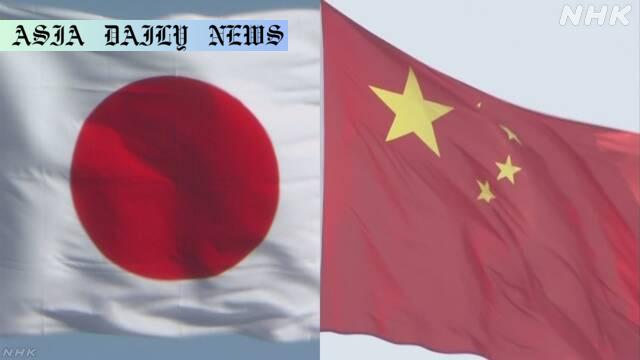Seafood Imports: Japan and China agree on requirements for resuming Japanese seafood exports despite past bans.
Japan and China have agreed on technical requirements for resuming Japanese seafood exports.
China’s ban on foods from 10 Japanese prefectures, including Fukushima, remains in place.
Export procedures are undergoing to ensure food safety compliance with Chinese regulatory standards.
Japan has been releasing treated water from the Fukushima plant under strict guidelines.

Introduction: Progress in Japan-China Seafood Trade Relations
Japan and China have reached a significant milestone by agreeing on the technical requirements for resuming Japanese seafood exports to China. This development marks an important step forward in repairing trade relations that were impacted after China suspended imports following Japan’s release of treated water from the Fukushima Daiichi nuclear power plant. This article explores the progression of these negotiations, the challenges that remain, and the implications of this agreement for both nations.
The Background: Fukushima’s Impact on Seafood Trade
In the aftermath of the Fukushima Daiichi nuclear disaster, Japan faced international scrutiny over the handling of treated and diluted radioactive water. This water, used to cool molten fuel from the plant, contains tritium, a radioactive isotope. Though carefully processed and diluted to meet stringent safety standards, its release into the ocean alarmed global markets, leading to China banning seafood imports from ten Japanese prefectures, including Fukushima.
This prohibition not only strained Japan’s seafood industry but also added tension to Sino-Japanese relations. Beijing’s concerns centered on food safety and potential environmental contamination, while Japan sought to demonstrate its commitment to adhering to international standards, including those set by the International Atomic Energy Agency (IAEA).
Key Developments in the Agreement Process
Amid ongoing negotiations, a critical breakthrough was achieved when Chief Cabinet Secretary Hayashi Yoshimasa announced that Japan and China had agreed on the technical procedures to renew seafood imports. Both nations committed to ensuring stringent food safety standards, with Japan promising to take visible and credible measures to meet Chinese regulatory criteria.
While the agreement signals progress, the ban on food imports from ten Japanese prefectures remains in place. However, Japan has expressed its determination to work toward lifting all restrictions. The framework involves re-registering export facilities and aligning them with China’s domestic laws and international rules.
The Role of Scientific and Regulatory Oversight
China closely monitored Japan’s seawater testing under IAEA protocols. The absence of abnormalities in two seawater monitoring rounds supported Japan’s case for safe seafood exports. Both governments emphasized the relevance of adhering to scientific principles and taking precautionary measures to ensure consumer safety.
Lin Jian, a representative from China’s Foreign Ministry, reiterated the country’s commitment to science-based trade policies and added that export requests would undergo vigilant assessment. Regulatory frameworks and mutual trust will play critical roles in shaping the future of seafood trade between these two Asian giants.
Implications for the Economy and Bilateral Relations
The agreement is not just about seafood—it represents a significant thaw in economic relations between Japan and China. For Japan, reopening this lucrative market will aid its seafood industry recovery, which has suffered losses from export restrictions. On the other hand, China ensures that its stakeholders see its government prioritizing public health and environmental safety.
Moreover, this development hints at broader diplomatic warming. If handled positively, it could catalyze further cooperation in other sectors, including technology, regional security, and climate change initiatives.
Conclusion
As Japan and China move toward normalizing seafood imports, this agreement highlights the importance of scientific rigor, regulatory alignment, and diplomatic engagement in resolving trade disputes. Though challenges lie ahead, this progress provides hope for broader cooperation and mutual trust between the two nations. The seafood trade resumption serves as a reminder of how shared efforts can overcome even the most complex geopolitical hurdles.
Commentary
A Milestone in Trade Diplomacy
The recent agreement between Japan and China to resume seafood imports is an encouraging development in their economic and diplomatic relationship. It reflects the ability of two economic powerhouses to negotiate contentious issues through science-driven solutions and mutual respect. This is not merely a trade matter but also a demonstration of diplomacy’s role in resolving long-standing disputes.
A Bright Spot for Japan’s Seafood Industry
For Japan, this agreement is a much-needed lifeline for its seafood industry, which has faced significant losses in the wake of China’s import ban. It also comes as a testament to the government’s commitment to food safety regulations and international standards. This cooperation could eventually help lift bans on exports from the remaining Japanese prefectures, further revitalizing the country’s economy.
Building Trust for a Prosperous Future
China’s cautious yet progressive stance indicates that trust is being rebuilt. By prioritizing food safety and the scientific principles behind regulatory decisions, both nations have set a precedent for others embroiled in trade conflicts. This collaboration also has implications for broader geopolitical dynamics in the region, fostering interdependence in a strategically critical area.
The Road Ahead
While the agreement is a significant breakthrough, many hurdles remain for complete normalization of seafood trade between the nations. Consistency in enforcing safety standards, addressing public concerns, and expanding the scope of collaboration will determine the long-term success of this agreement. Both governments will need to sustain momentum while reassuring their domestic audiences of their prioritization of safety and economic interests.


